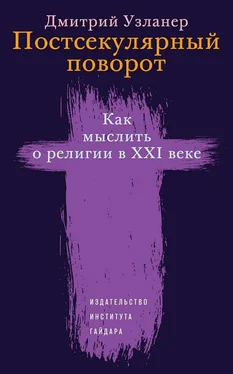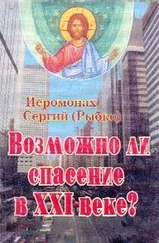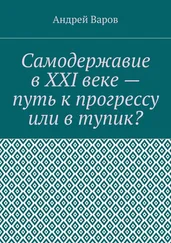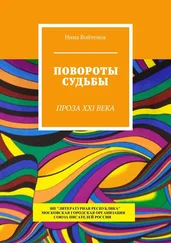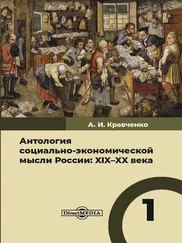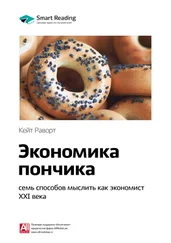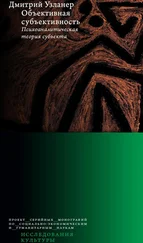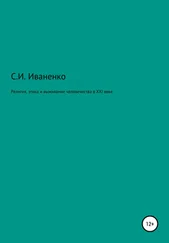Cavanaugh W. T. The Myth of Religious Violence. Secular Ideology and the Roots of Modern Conflict. Oxford University Press, 2009.
Chakrabarty D. Provincializing Europe: Postcolonial Thought and Historical Difference. Princeton: Princeton University Press, 2000.
Chidester D. Savage Systems: Colonialism and Comparative Religion in Southern Africa. University of Virginia Press, 1996.
Chidester D. Empire of Religion: Imperialism and Comparative Religion. University of Chicago Press, 2014.
Cistelecan A. The Theological Turn of Contemporary Critical Theory // Telos. 2014. 167 (Summer): 8–26.
Connolly W. E. Why I Am not a Secularist. Minneapolis: University of Minnesota Press, 1999.
Cunningham C. Darwin’s Pious Idea: Why the Ultra-Darwinists and Creationists Both Get It Wrong. Grand Rapids, MI: Eerdmans, 2010.
Cunningham C. Genealogy of Nihilism. L., N. Y.: Routledge, 2002.
Davie G. The Sociology of Religion. London: Sage, 2007.
Depoortere F. The Death of God: An Investigation into the History of the Western Concept of God. T. & T. Clark Ltd., 2008.
Derrida J., Vattimo G. Religion. Palo Alto: Stanford University Press, 1998.
Despland M. La religion en Occident: evolution des idees et du vecu. Montreal: Fides, 1979.
Despland M., Vallee G. (eds.) Religion in History. The Word, the Idea, the Reality / La religions dans l’histoire. Le mot, l’idee, la realite. Waterloo: Wilfred Laurier University Press, 1992.
Dobbelaere K. Assessing Secularization Theory // Antes P., Geertz A. W., and Warne R. R. (eds.) New Approaches to the Study of Religion. Vol. 2: Textual, Comparative, Sociological, and Cognitive Approaches. Berlin, New York: Walter de Gruyter, 2004.
Dobbelaere K. Secularization: An Analysis at Three Levels. Brussels: Peter Lang, 2002.
Dobbelaere K. Towards an Integrated Perspective of the Processes Related to the Descriptive Concept of Secularization // Swatos W. H., Olson D. V. A. (eds.) The Secularization Debate. Lanham, Boulder, N. Y., Oxford: Rowman & Littlefield Publishers, Inc., 2000.
Dubuisson D. The Western Construction of Religion: Myths, Knowledge and Ideology. Baltimore: The Johns Hopkins University Press, 2003.
Dumont L. Essais sur l’individualisme: Une perspective anthropologique sur l’ideologie moderne. Paris: Seuil, 1983.
Dupre L. Passage to Modernity: An Essay in the Hermeneutics of Nature and Culture. New Haven: Yale University Press, 1993.
Dzalto D. Religion and Realism. Cambridge: Cambridge Scholars, 2016.
Eggermeier M. T. A Post-Secular Modernity? Jürgen Habermas, Joseph Ratzinger, and Johann Baptist Metz on Religion, Reason, and Politics // The Heythrop Journal. 2012. 53: 453–466.
Eisenstadt Sh. Multiple Modernities // Daedalus. 2000. 129 (1).
Eisenstadt Sh. N. Comparative Civilizations and Multiple Modernities. 2 Vol. Leiden: Brill, 2003.
Eisenstadt Sh. N. European Civilization in a Comparative Perspective: A Study in the Relations between Culture and Social Structure. Oxford University Press, 1987.
Eisenstadt Sh. N. The New Religious Constellations in the Frameworks of Contemporary Globalization and Civilizational Transformation // Ben-Rafael E., Sternberg Y. (eds.) World Religions and Multiculturalism. Leiden, Boston: Brill, 2010.
Eisenstadt Sh. N. Tradition, Change, and Modernity. John Wiley & Sons Inc., 1983.
Fagan G. Believing in Russia: Religious Policy after Communism. London: Routledge, 2011.
Feil E. From the Classical religio to the Modern Religion: Elements of a Transformation between 1550 and 1650 // Despland M., Vallee G. (eds.) Religion in History. The Word, the Idea, the Reality / La religions dans l’histoire. Le mot, l’idee, la realite. Waterloo: Wilfred Laurier University Press, 1992.
Feil E. Religio. Bande 1–4. Gottingen: Vandenhoeck und Ruprecht, 1986–2007.
Fenn R. K. Toward a Theory of Secularization. Society for the Scientific Study of Religion, 1978.
Ferrara A., Kaul V. and Rasmussen D. Special Issue of Philosophy and Social Criticism: Postsecularism and Multicultural Jurisdictions. 2010. Vol. 36 (3–4).
Finke R., Stark R. The Сhurching of America, 1776–2005: Winners and Losers in Our Religious Economy. New Brunswick, NJ: Rutgers University Press, 2005.
Fitzgerald T. Discourse on Civility and Barbarity: A Critical History of Religion and Related Categories. Oxford, N. Y.: Oxford University Press, 2007.
Fitzgerald T. Playing Language Games and Performing Rituals: Religious Studies as Ideological State Apparatus // Method & Theory in the Study of Religion. 2004. 15 (3): 209–254.
Fitzgerald T. The Ideology of Religious Studies. New York: Oxford University Press, 2000.
Fordahl C. The Post-Secular: Paradigm Shift or Provocation? // European Journal of Social Theory. 2017. 20 (4): 550–568.
Foucault M. Le shah a cent ans de retard // Corriere della serra, 1 octobre 1978.
Foucault M. Une poudriere nomme Islam // Corriere della serra, 13 fevrier 1979.
Gordon S. Hitler, Germans, and the «Jewish Question». Princeton: Princeton University Press, 1984.
Gorski Ph., Kyuman Kim D., Torpey J. and VanAntwerpen J. (eds.) The Post- Secular in Question: Religion in Contemporary Society. New York & London: New York University Press, 2012.
Habermas J. A Conversation about God and the World // Habermas J. Religion and Rationality. Essays on Reason, God, and Modernity. Polity Press, 2002.
Habermas J. Dialogue. Jürgen Habermas and Charles Taylor // Butler J., VanAntwerpen J. (eds.) The Power of Religion in the Public Sphere. Columbia: Columbia University Press, 2011. P. 60–69.
Habermas J. Europe: The Faltering Project. Cambridge: Polity Press, 2009.
Habermas J. Religion in the Public Sphere // European Journal of Philosophy. 2006. 14 (1): 1–25.
Habermas J. The Boundary between Faith and Knowledge: On the Reception and Contemporary Importance of Kant’s Philosophy of Religion // Habermas J. Between Naturalism and Religion. Polity Press, 2008. P. 209–248.
Habermas J. «The Political»: The Rational Meaning of a Questionable Inheritance of Political Theology // Butler J., VanAntwerpen J. (eds.) The Power of Religion in the Public Sphere. Columbia: Columbia University Press, 2011. P. 15–33.
Habermas J. The Structural Transformation of the Public Sphere: An Inquiry into a Category of Bourgeois Society [1962]. Cambridge: Polity Press, 1989.
Habermas J. Transcendence from Within, Transcendence in this World // Habermas J. Religion and Rationality. Essays on Reason, God, and Modernity. Polity Press, 2002.
Habermas J., Mendieta E. «A Postsecular World Society? On the Philosophical Significance of Postsecular Consciousness and the Multicultural World Society». An Interview with Jürgen Habermas // The Immanent Frame. 3 February 2010 [tif.ssrc.org/wp-content/uploads/2010/02/A-Postsecular-World-Society-TIF.pdf, доступ от 12.05.2019].
Habermas J., Ratzinger J. The Dialectics of Secularization. On Reason and Religion. San Francisco: Ignatius Press, 2006.
Habermas J., Ratzinger J. Vorpolitische Moralische Grundlagen eines Freiheitlichen Staates // zur debatte. 2004. 34 (1): 1–12.
Hanegraaf W. New Age Spiritualities as Secular Religion: A Historian’s Perspective // Social Compass. 1999. 46 (2): 145–160.
Читать дальше
Конец ознакомительного отрывка
Купить книгу
